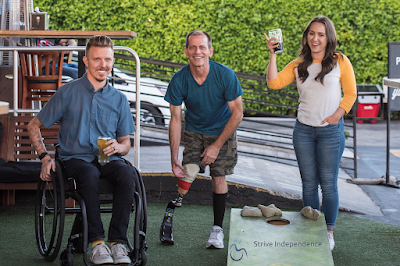NDIS has been supporting people with disabilities since 2013. It has made people confident and independent in their lives, so their disability doesn’t become a burden.
The NDIS plan provides financial and daily support to more than 200,000 Australians with a disability and their families for the next five years. People with disabilities have high hopes for NDIS since NDIS has helped many people.
- The activities like support coordination, strategic or referral services or activities
- Funding to the NDIS participants to help them in social activities
- Fulfilling the plans of the participants through the funding by NDIS provider
You can find the nearest NDIS service provider in Australia to meet your NDIS goals. Once you become eligible, you can achieve your goals with funding.
The NDIS also supports the family and caregivers of the NDIS participants to help them strengthen their support system and connect with the community more freely and independently.
What services does NDIS provide, and how does it helps people with disability?
Information and support
Quick access to information is easy for many people looking for disability services in Australia. NDIS will provide access to support options. It also helps build individual capacities such as links to the support coordinator, initiatives and social programs.
Individualized plans and support to reach the goals
NDIS is a goal-based program, and every participant’s goal is unique. There are so many NDIS participants in the program, so how does NDIS fulfill everyone’s goals? They do it through individualized plans and support. NDIS also supports families of people with disability so that they can also help them achieve their NDIS goals.
Funded Support
The participants may be eligible for funded support depending on the goals. It involves choosing the support providers for ongoing support programs, mobility equipment, housing support, multicultural services, or disability care services. These services provide a comfortable life to NDIS participants by making it easier for them to live their daily life. It also involves choosing support providers for ongoing support programs, such as buying a wheelchair.
Assistive Technology
NDIS also provides assistive technology support to those participants who are eligible. Assistive technology involves any device or system that helps people with disabilities perform tasks they might be unable to. The assistive technology devices may include mobility canes, wheelchairs, hearing aids and red rails.





No comments:
Post a Comment